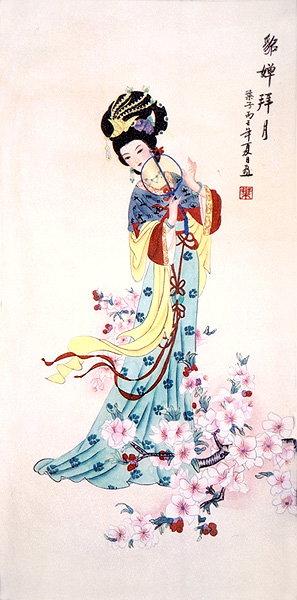Thursday, April 29, 2010
Orientalism and the Displacement of Identity in Kingston's *The Woman Warrior*
In defining Orientalism, Edward Said claims that "[t]he Orient was almost a European invention, and had been since antiquity a place of romance, exotic beings, haunting memories and landscapes, remarkable experiences" (1991). He further claims that "the imaginative examination of things Oriental was based more or less exclusively upon a sovereign Western consciousness out of whose unchallenged centrality an Oriental world emerged, first according to general ideas about who or what was an Oriental, then according to a detailed logic governed not simply by empirical reality but by a battery of desires, repressions, investments, and projection" (Said 1996). Essentially, what Said illuminates is that Orientalism is a theory and practice that perpetuates and identifies Western culture as hegemonic, and Orientalism is a means to iterate "the idea of European identity as a superior one in comparison with all the non-European peoples and cultures" (Said 1995). In short, Orientalism imposes a definition on non-Europeans, identifying them as inferior to Westerners.
In Woman Warrior, the effects of Orientalism, its imbeddedness in Western identity creates a conflict of identity for Maxine Hong Kingston. Kingston, a Chinese-American who grew up with a traditional Chinese mother, is confused about her Chinese identity. Kingston identifies being Chinese according to the Orientalist view of non-Westerners, admitting "I knew the silence had to do with being Chinese" (Kingston 166). She believes that "[Chinese] voices were too soft or nonexistent," reiterating a lack of voice. The irony in Kingston's situation is the powerful presence of her mother. That is, Kingston's mother, Brave Orchid, is a strong, determined woman who defies the definition of Chinese women as meek and silent. A Chinese woman who grew up in rural China, Brave Orchid exemplifies being Chinese and being woman as characteristic of power and determination, of overcoming obstacles and being matriarch. In the relationship between Kingston's mother and father, the mother seems to hold authority, making decisions for the family; the matriarch of the tribe.
How ironic that Kingston does not take after her mother. As a teenage girl, instead of looking up to her mother as an example to follow, she, instead, becomes inculcated with the Westernized view of Chinese girls. This inculcation of Western ideals is apparent as Kingston confesses, "Normal Chinese women's voices are strong and bossy. We American-Chinese girls had to whisper to make ourselves American-feminine. . .We invented an American-feminine speaking personality" (Kingston 172). Kingston exposes how femininity and definitions are societal constructs perpetuated by those who believe in them. This construction of definition is very much apparent in the Western view of Orientals, deeming them as Other, incapable, silent and without power.
Kingston, Maxine Hong. The Woman Warrior. New York: Vintage International, 1989. Print.
Said, Edward. Orientalism. The Norton Anthology: Theory and Criticism. Ed. Vincent B. Leitch.
New York: W.W.Norton, 2001. 1986-2011. Print.
Posted by Margeaux Gamboa-Wong at 2:36 PM
Subscribe to:
Post Comments (Atom)




0 comments:
Post a Comment